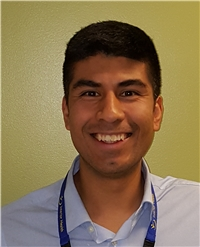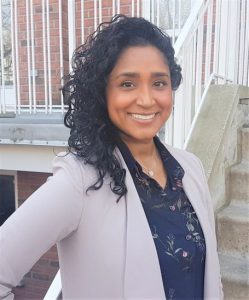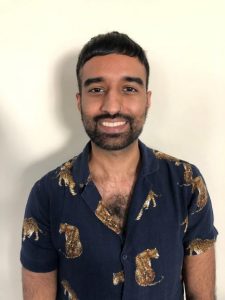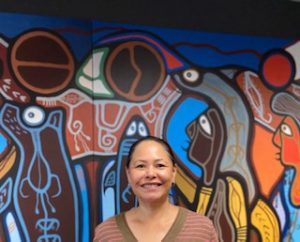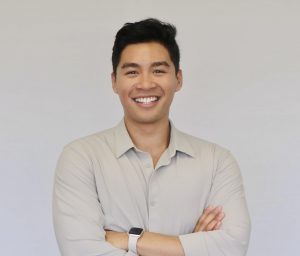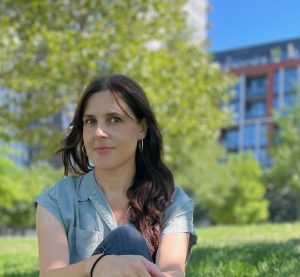- Degree Division
- Social & Behavioural Health Sciences Division
- Program Contact
- Daniel Grace
The application deadline for the 2026-27 academic year is Friday, November 21, 2025. Information for future students can be found here.
The Program Director held a 1-hour virtual information session for prospective applicants on October 23, 2025. Copy of the Presentation Slides can be found HERE.
Degree Overview
The PhD course of study includes a set of common requirements with flexibility to enable the student to pursue a unique learning experience tailored to his/her learning needs and research problem focus. The program permits students to pursue their area of interest from different levels of understanding and theoretical perspectives.
The program enables students to take advantage of what the university/program faculty has to offer, and assists them in tailoring their studies according to their own experiences, scholarly interests, career direction and aspirations. This program also participates and encourages participation in a variety of interdisciplinary graduate University of Toronto Collaborative Specializations.
Features of the program:
- Emphasizes the application of concepts, theories, models and methods concerned with the structures and processes that underlie health and health promotion, illness, premature mortality, injury and disability;
- Emphasizes research methodology (philosophy and design) and research methods (techniques);
- Seeks to develop substantive knowledge and critical analytic ability at multiple levels of analysis, from the “micro” individual level to the “macro” societal level;
- Fosters a reflexive and critical perspective on theory and methodology; and
- Adopts a model of independent student scholarship.
The requirements of the PhD Program in Social & Behavioural Health Sciences (SBHS) include:
- Coursework
- Qualifying exam
- Thesis proposal defense
- Thesis defense:
A) Departmental defense
B) Final oral examination
Admission Requirements
See Application Process for information about the admission process. Click here to view minimum application requirements for a PhD Program. Click here for information on our funding package and for information on the university’s funding policies. To identify potential supervisors, please visit our faculty database which is searchable by research interest. While you are not required to have a confirmed match with a supervisor at the time of your application, it is strongly recommended that you list one or more potential supervisors in your letter of intent to help demonstrate fit with our program. Prospective students are encouraged to contact potential supervisors in advance to determine their capacity to take on new doctoral students.
Additional Admission Requirements for the PhD
- A match between the student’s research area and potential supervisor’s expertise
- Background (course, experience) in social sciences and/or health sciences
- Graduate level quantitative or qualitative methods courses/background
Course Requirements
Coursework (reflects minimum requirements)
Course Requirements (3.0 FCE)
Required Courses:
- 2 required theory courses
- 2 required methods courses
- To be selected according to the student’s interests and educational needs, in consultation with the supervisor.
- By the end of their degree, students should aim to have working knowledge of both qualitative and quantitative methods, and to achieve proficiency in one of these approaches.
- 2 electives
Please note that students can satisfy coursework requirements with courses from across the DLSPH and University of Toronto. We encourage students to seek out such courses.
Qualifying Examination
The purpose of the qualifying exam (QE) is to assess the student’s capacity to understand, apply, and compare theoretical perspectives that are taught in the Social and Behavioural Health Sciences (SBHS) core theory courses (CHL5101H and CHL5102H). Specifically, the QE process will assess the student’s ability to theorize a topic using two different theoretical approaches and to propose theoretically sophisticated research questions that would advance the student’s topic area of interest and may be used for the dissertation. The qualifying examination is written during the months of May and June of the student’s first year.
CLICK HERE FOR DETAILED QUALIFYING EXAM GUIDELINES
Thesis Proposal Defense
The thesis proposal defense is a requirement for candidacy and for full-time students, should be completed by December of the second year, or earlier if possible.
The purpose of the proposal defense is to:
- Ensure that the proposed research will result in a successful PhD dissertation.
- Strengthen the thesis question, theoretical framework, design, and methods through critical feedback.
- Assess the student’s ability to conduct independent and original research.
- Assess the student’s knowledge base relevant to their thesis topic.
- Provide a formal approval to proceed with the dissertation research.
DETAILED proposal defense GUIDELINES
Supervision
Successful applicants will have research interests congruent with those of one or more members of faculty. Thus, applicants are strongly encouraged to seek out potential supervisors, and discuss with them the possibility of studying under their supervision, prior to applying to the degree program. Applicants should note that identifying a potential supervisor does not guarantee admission. PhD students must be supervised by a faculty member who has an appointment in the Division of Social and Behavioral Health Sciences (SBHS) and Full Membership in the School of Graduate Studies (SGS). A co-supervisor generally will be a faculty member with Associate Membership in the SGS. Other faculty in Public Health Sciences outside of SBHS may be eligible to supervise with the approval of the Program Director. The Program Director must approve the final selection of the primary supervisor and co-supervisor. The faculty supervisor may be confirmed prior to beginning the program, and should be in place by the end of the first term. Students are encouraged to explore broadly and have wide-ranging discussions with potential supervisors.
Upon admission to the PhD Program, students and supervisors should review and complete the Graduate Department of Public Health Sciences PhD Student-Supervisor Conversation Checklist.
Students have the right to appropriate assistance and guidance from their supervisors. Supervisors and students are required to meet on a regular basis throughout the program to discuss academic, financial and personal matters related to the student’s progress. Students should assume responsibility for contacting the supervisor, arranging meetings, and setting agenda for committee meetings.
In rare circumstances, it may be necessary for students to change their area of research and/or their supervisor. In these cases, the first step would be for students to discuss the potential change with their supervisor and/or PhD Program Director.
Supervisor Role and Responsibilities
The supervisor is responsible for providing mentorship to the student through all phases of the PhD program. Thus; to the extent possible, the supervisor will guide the selection of courses, dissertation topic, supervisory committee membership, and supervisory committee meetings; will assist with applications for funding; will provide funding to the student directly when it is possible for them to do so; and will provide references for the student on a timely basis. The supervisor also will provide feedback on the student’s selection of theories and reading lists for the qualifying examination. The supervisor will guide the development of the student’s research proposal, and the implementation and conduct of all aspects of the research; advise on writing the dissertation; correct drafts and approve the final dissertation; and attend the defense.
For more information about student and supervisor roles and responsibilities, please see the School of Graduate Studies Graduate Supervision Guidelines.
Supervisory Committee
With the assistance of the supervisor, and with the approval of the Program Director, the student will assemble a Supervisory Committee no later than the end of their second term in the program (i.e., by May of their first year).
Composition of the Supervisory Committee
The Supervisory Committee generally will comprise the supervisor and at least two members who hold either Full or Associate Membership in the SGS and may or may not hold a primary appointment in SBHS. Between these individuals and the supervisor, there should be expertise in all substantive, theoretical and methodological areas relevant to the Student’s research focus and dissertation proposal.
Meetings
Supervisory Committee meetings will be held at least every six (6) months throughout the student’s PhD program. More regular meetings should be held with the supervisor. Under certain circumstances (e.g., during times of very rapid progress), the student and the Supervisory Committee may decide there is a need for more frequent meetings.
Reporting
At the end of every meeting of the Supervisory Committee, the student and the Committee will complete the Supervisory Committee Meeting Report. All present must sign the report; in case the meeting is held virtually, the supervisor and committee members can e-sign the report. A scanned or paper copy of the report should be e-mailed/delivered to the SBHS Admin Assistant at sbhs.dlsph@utoronto.ca.
The Graduate Department of Public Health Sciences will keep a copy of the report in the student’s progress file.
Progress Through the PhD
The phases of the PhD program are identified by a set of accomplishments which the student generally will attain in order, and within a satisfactory time. These phases, which will be monitored by the Program Director of the PhD program, are the identification of the Supervisor and the Supervisory Committee, completion of required and elective course work, completion of the qualifying examination, defense of the research proposal, and defense of the dissertation (both Departmental and SGS). Full-time students are expected to complete the PhD within four years. Flex-time students may take longer, but not more than eight years; they must submit a revised list of milestones, for approval by the Supervisor and the Program Director.
Dissertation
The PhD dissertation must demonstrate an original contribution to scholarship. The nature of the dissertation is agreed upon by the supervisor and the student, in consultation with a Thesis Committee. The Student should aim to defend the dissertation within four years of entry into the PhD program. The defense of the dissertation will take place in two stages: first, a Departmental defense, second, a formal defense (the Final Oral Examination) before a University committee according to procedures established by the School of Graduate Studies (SGS). The two defenses generally are separated by at least eight weeks.
a) Departmental Defense:
The Departmental defense will be held after the completed dissertation has been approved by all members of the student’s Supervisory Committee, and the completion of the final Supervisory Committee meeting report. The purpose of this defense is to rehearse the oral presentation for the SGS defense and to determine whether the student is ready for the SGS defense.
CLICK HERE FOR DETAILED departmental defense procedureS
b) School of Graduate Studies Final Oral Examination (FOE)
Procedures for arranging Final Oral Examination can be found here. The dissertation and the necessary documents must be submitted at least eight weeks prior to the oral exam. See the Graduate Department of Public Health Science academic policies for forms and information for thesis preparation, including guidelines on multiple paper dissertations, and arranging the defense.
- Click here for Guidelines on Multiple Paper Dissertations
- Click here for Producing Your Thesis guidelines on SGS website
- Click here for Final Oral Exam Guidelines on SGS website
Student Profiles & Contact
| Name | Supervisor | Research Interests/Dissertation |
|
Nadine Samir Abdel-Ghafar (she/her)
|
Lori Ross |
Islamophobia; mental health; health service utilization “w.voice- Women’s Voices of Islamophobia in Care Encounters: A study exploring Muslim women’s experiences of Islamophobia in publicly funded mental healthcare settings in the Greater Toronto Area (GTA)” |
|
|
Lori Ross |
2SLGBTQ+ mental health and wellbeing, Latin American Feminisms, critical qualitative research, mixed-methods, globalization, gender “Project DaRE – Deciding, Resisting and Existing: Autonomy and mental wellbeing of adult LGBTQ+ women in Mexico.” https://proyectodare.com/investigacion/ |
|
|
& |
Rural migration and health, multi-level governance, health systems, and political economy of health “Devolving Immigrant Recruitment and Settlement Services to the Local Level: An Explanatory Case Study of Immigrant Health and Social Services in Rural British Columbia” |
Ethel Barnes |
Daniel Grace | Black Women’s Mental Health and Service Access |
|
Momtaz Begum (she/her)
|
Erica Di Ruggiero |
Immigrant and Racialized workers; Work and Health; Precarious Employment; Work Injury and Illnesses; Workers’ Compensation; Health Equality; Systemic Discrimination; Social Justice; Labour and Welfare Policies; Linguistic Minorities. “An intersectional political economy study examining how social and economic policies influence employment and health inequalities among marginalized workers in Canada” |
Siti Hazirah Binte Mohamad (she/her) |
Jennifer Gibson |
End of life/palliative care, healthcare financing and policy, health inequity, resource allocation ethics and institutional ethnography “Die, die must live?: An Institutional Ethnography of Palliative Care in Singapore” |
|
|
Robert Schwartz |
Gender-based violence, public health policy, global health, intersectionality, mental illness and substance use, stigma and discrimination “Gender-based violence policy implementation in the Co-operative Republic of Guyana” |
Andrea Bowra (she/her) |
Jillian Kohler |
Drug policy; global health systems; pharmaceutical violence; sociomaterial methods “Accountability in the Aftermath of Purdue: A Network Analysis of Global Health Systems” |
|
|
Janice Du Mont |
Sex trafficking, women, healthcare providers, healthcare encounters, qualitative research, intersectionality “An intersectional examination of sex trafficking in Ontario, Canada: Centring the voices of the women who have been sex trafficked and those providing care” |
|
|
& |
Settler colonialism, surveillance, carcerality, parenthood, health equity, critical qualitative research |
|
|
Pia Kontos |
End-of-life care; volunteerism; ethnography “Things Living and Left Behind: An Ethnographic Study of Legacy Activities in End-of-Life Care” |
| Jürgen Rehm |
Drug policy / the regulation of psychoactive substances (e.g. alcohol, cannabis, opioids) “What Is a Public Health Approach to Substance Use? An Investigation in Three Parts” |
|
|
Antonia Di Castri (she/her)
|
Clara Juandó-Prats | Communicable disease and climate change prevention, adaptation, and preparation; trust in science/public health; health equity; community-engaged participatory research; feminist socio-critical theory; environmental and social determinants of health; art and nature as research practice. |
|
Joshun Dulai(he/him and they/them)
|
& |
2SLGBTQIA+ health; BIPOC health; South Asian health; sexual health; mental health; Critical Race Theory; Intersectionality; Minority Stress; Community-Based Participatory Research; Mixed-Methods Research “How do systems of oppression impact access to sexually transmitted and blood-borne infection prevention services for queer South Asian men? An intersectional mixed-methods study.” |
|
Tiyondah Fante-Coleman (she/her)
|
Josephine Pui-Hing Wong |
Critical Qualitative Research, Community-based Participatory Research, Mental Health, Black Communities, Data Governance and AI, Access to Primary Care “Exploring Restraint Use on Young, Black Patients in Psychiatric Settings: An Institutional Ethnography & Critical Race Theory Approach” |
|
Wren Ariel Gould (they/them)
|
& |
2SLGBTQ+ mental health, critical psychiatry, critical theory, queer theory, trans studies, biopolitics, critical political economy, cultural studies, new materialism(s) |
|
|
Pia Kontos |
Women’s experiences of healthcare; diagnostic delay; critical qualitative health research; gender equity; 2SLGBTQ+ equity; patient oriented care; structural determinants of health “Examining the Structural Determinants of Diagnostic Delays Through the Experiences of Ontario Women: A critical phenomenology and intersectional study” |
|
|
Angela Mashford-Pringle | Ecosystems Approaches to Health, Land-Based Learning, Indigenous Ways of Knowing, Health Professions Education & Critical Pedagogies, Qualitative and Arts-Based Methods |
|
David Hill (he/him)
|
Anne-Emanuelle Birn |
Global Health, work and health, critical qualitative research, Latin American Social Medicine theory “Solidarity Economies amid COVID-19: Learning from Collective Decision-Making in Costa Rican Cooperatives” |
|
Aaliyah-Mae Hinds (she/her)
|
Hayley Hamilton |
Black Populations, Critical Race Theory, Critical Disability Studies, Community-Based Research “Exploring the systemic, cultural, and social barriers to disability support service seeking for Black disabled Canadians: A constructivist grounded theory study” |
|
Damilola Iduye (she/her)
|
Erica Di Ruggiero |
Race, ethnocultural identity, Black and immigrant populations, structural racism, public health policies, intersectionality, diabetes, mixed methods, nurse migration and professional recertification, and global health “How do socio-structural determinants of health shape the experiences of Black Canadians with type 2 diabetes?” |
|
Mathieu Isabel (he/him)
|
& |
Homelessness, peer-support, primary care, medicalization, ethnography, implementation science “The integration of peer-support workers in a community based primary care clinic offering services to people experiencing homelessness in Montreal” |
|
|
Lisa Forman |
Migration and health, health inequity, human rights, temporary labour migration, health ethics, social justice, qualitative health research “Is the right to health for all? Health inequity among temporary migrant farmworkers in Canada’s Seasonal Agricultural Worker Program”. |
|
|
& |
Women’s health, reproductive health, gender-based analysis, intersectionality, health equity, gendered pathologies, medicalization “Diving into the Archives of the Cysterhood: A Qualitative Study to Examine the Gendered Medicalization of Polycystic Ovarian Syndrome” |
|
|
& |
Workplace health promotion, mental health, sex and gender |
|
Sara Lacarte (she/her)
|
Michael Atkinson |
Critical post-humanism (e.g., Deleuze-Guattari), critical autism studies, the neurodiversity movement, post-qualitative inquiry “Not Made to Fit: A Post-Qualitative Schizoanalysis of Autistic Neuroqueer Labour and the Refusal of Normative Work” |
|
|
Pia Kontos |
Dementia care; aging; childhood; arts-based research methods “Exploring relationships between people living with dementia in long-term care homes and children: a narrative ethnographic study”
|
|
Nina Lamberti (she/her)
|
& |
Reproductive Justice, abolition, prison health, criminalization and health intersection, racial equity, BIPOC women’s health, contraception and abortion provision |
|
Geng-Hui Lin (he/him)
|
& |
LGBTQ+ health, LGBTQ+ aging, HIV prevention, PrEP care continuum, social network, behaviour change theory |
|
Kyara Liu (she/her)
|
Janice Du Mont | Domestic sex trafficking; sexual violence; intimate partner violence; health services research, mixed methods |
|
Si Yinn Lu (she/her)
|
Pia Kontos | Experiences of aging and precarity; critical gerontology; cultural gerontology; critical qualitative research; loneliness and social isolation; health and social inequity |
|
|
Janet Smylie |
Indigenous methodologies, community-based participatory research, qualitative research, Indigenous knowledge mobilization “nikan oti wapahtamowin: Advancing the Future of Public Health for Indigenous Peoples of Canada” |
|
|
Daniel Grace |
Health research, HIV prevention, Black populations, race & racism, gender, scientific racism, Black studies, critical race theory, critical narrative analysis. “Examining Black women’s experiences of accessing HIV services: a critical narrative explorations of race and racism”
|
|
|
& |
Critical autism studies, A/autistic Communication, Posthumanism, Critical Disability Studies, Affective Ethnography, Relationality “Listen Louder: An Ethnographic Exploration of Autistic Non-verbal Communication informed by Posthuman Disability Studies”
|
|
Elsie Obeng-Kingsley (she/her)
|
& |
Black feminist thought, intersectionality, Black women’s health, misogynoir, critical qualitative health methodologies, arts-based research methodologies (e.g., body mapping), health equity, embodiment, anti-racist and decolonial praxis-centered approaches |
|
Jianna Quickstad (she/her)
|
Erica Di Ruggiero |
Equity-focused evaluation; integrated knowledge translation; qualitative research; rural research; health promotion; school-based peer education; diffusion of innovation theory; harm reduction “An Equity-Focused Implementation Process Evaluation of a School-Based Peer Education Vaping Intervention in Rural Central Alberta Schools” |
|
Mathankki Ramasamy (she/her)
|
& |
Health services; health policy; health equity; women’s health; patient centered care; patient engagement; socio-structural determinants of health; critical qualitative health research “Unveiling the Aftermath of Treatment: An Exploratory Case Study of the Experiences of Cervical Cancer Survivors During Follow-up Care in Ontario Healthcare Settings” |
|
Leo Ruhl (he/him)
|
Michael Atkinson | Public health policy; illness narrative; ethnography; pandemic response. |
|
Carlos E. Sanchez-Pimienta (he/him)
|
Blake Poland |
Ecological public health, decolonial health promotion, Indigenous research, political ontology, narrative research, ethnography, intersectoral action, homelessness prevention “Toward Pluriversality in Ecological Public Health Education: Learning from Resurgence Stories in a Global South Sacrifice Zone” |
|
John Segui (he/him)
|
& |
Race, sexuality, queer theories, science and technology studies, dating apps, and qualitative methods. “Digital Desires and Discrimination: A Situational Analysis of Sexual Racism on Dating Apps Experienced by Young Asian Men who have Sex with Men (YAMSM)” |
|
Lauren Squires (she/her)
|
& |
2SLGBTQ+ health; psychosocial oncology; online health communities; intersectionality; mixed methods research; health equity “Exploring online support group (OSG) use among sexual and gender diverse (SGD) people diagnosed with breast/chest cancer in Canada: A mixed-methods study” |
|
|
Angela Mashford-Pringle |
Jewish Health, Indigenous Cultural Safety, Community Wellbeing, Health Equity “Antisemitism as a Social Determinant of Health: Experiences of Jewish |
|
|
Erica Di Ruggiero |
Traditional and Indigenous food systems and nutrition; diffusion of innovation; culinary studies; food perceptions and spiritual meaning; mixed methods; art-based food education; maternal and child nutrition; food media “Using Mixed Methods to Understand how Infant Formula Marketing, Communication Channels, and Traditional Health Beliefs Affect Exclusive Breastfeeding among Women in Palawan, Philippines” |
|
Darby Whittaker (she/her)
|
Carol Strike | Women’s health, substance use, adulterants, HIV, harm reduction service provision, narcofeminism, community-based participatory research |
|
Lindsay Windhager
|
Carol Strike | Community-Based and Participatory Research Approaches; Social and Structural Determinants of Health; Harm Reduction Programs; Mental Health, Substance Use and Homelessness; Low barrier service provision; Addressing barriers to health equity for women and gender-diverse people, people who use drugs, people who are unsheltered and/or people who live with mental health struggles. |
| Monique Gignac |
Chronic episodic disability; disclosure of private information in the workplace, the co-workers’ role in workplace communication and support processes, impression management, communication privacy management. “Understanding the role of co-workers in the support, communication and disability disclosure process of people working with chronic episodic disabilities” |
|
|
Minhui Yang (she/they)
|
Josephine Pui-Hing Wong |
Migration, wellbeing improvement, health practices, mutual care, community-based approaches, critical ethnography “Keeping well: an ethnographic community-based exploration of Chinese seniors’ wellbeing-related practices in Toronto, Canada” |
| Emilia C. Zamora-Moncayo (she/her)  |
Anita Benoit |
Indigenous mental health; Indigenous onto-epistemologies; decolonial theory; critical mental health; Indigenous feminisms; Indigenous public health; participatory and community-based health research; epistemic justice. “Reclaiming Vivir Bien: A Community-Based Study of Indigenous Knowledge, Mental Health, and Public Health Praxis in Indigenous Communities across Ecuador.” |


